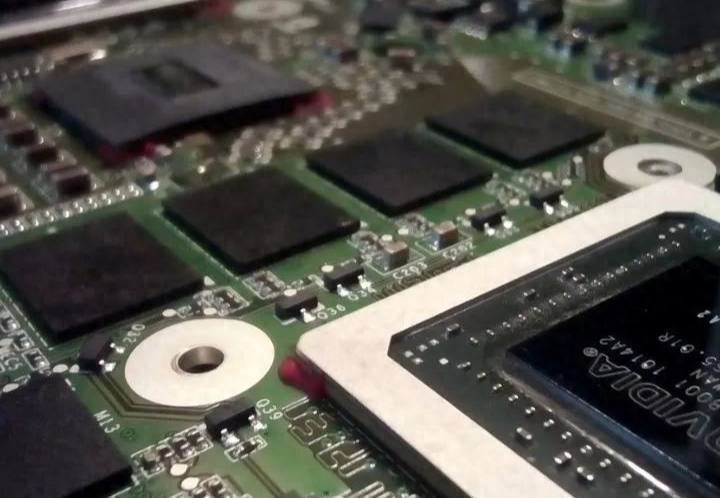NVIDIA Shares Dive 10% on AMD Surprise
Advertisements
Securities analysts and investors alike have been increasingly concerned about a potential bubble in the semiconductor sector, which has historically been characterized by high volatility. Recent market movements have underscored this anxiety, particularly evidenced by significant drops in the stock prices of major semiconductor firms such as Nvidia and Super Micro Computer. This situation signals a broader trend towards reevaluating not just semiconductor valuations but those of technology companies affiliated with artificial intelligence (AI) as well.
On a particularly turbulent day for the markets, Nvidia's stock plummeted by 10% following an unexpected announcement from Super Micro Computer that disrupted the usual pre-earnings routine. Typically, Super Micro has been known for its strong sales and profitable forecasts, previously pre-releasing positive earnings projections that helped foster investor confidence. However, the recent change in strategy—where they announced a later release date for their third-quarter earnings—sent shockwaves through the tech sector.
On Friday, Super Micro's stock experienced a dramatic decline of 23.14%, bringing its share price down to $713.65. The effect was felt throughout the industry, leading to a corresponding 10% drop in Nvidia's stock, which ended the day at $762.00, constituting one of its worst trading days since March 2020. The coupling of Super Micro and Nvidia's intertwined operational fates reflects deep-rooted concerns about the health of the AI market and the surrounding technology ecosystem.
Investors had hoped for positive data to emerge from Super Micro, particularly regarding AI-related metrics. However, the absence of encouraging news led to a sell-off that spilled over into other key players in the semiconductor space. Similar companies like Advanced Micro Devices (AMD) and Arm suffered losses as well, with AMD declining by 5.4% to $146.64 and Arm down by 16.9% to $87.19. Even tech giants such as Taiwan Semiconductor Manufacturing Company (TSMC) faltered, experiencing a drop of 3.46%, highlighting the widespread impact of these developments.

Wells Fargo Securities expressed that the lack of optimistic pre-announcement from Super Micro was a disconcerting signal for investors. By breaking from their previous trend of reassurances, the company ignited fears about the overall demand for AI solutions and server infrastructure. The impact on Nvidia was particularly pronounced, as they are seen as a critical component in the AI-hardware market, which had recently enjoyed a speculative boom.
The market dynamics began to indicate that investors were more inclined to cash in their positions amidst rising uncertainty regarding the profitability of semiconductor stocks following a period of buoyant expectations surrounding AI's growth. The decline in prices could suggest that not only are the days of rapid speculative growth waning, but there is also a growing realization that many semiconductor stocks may have been overvalued amidst the previous hype surrounding generative AI technologies.
A newly released report from CNBC Pro highlighted that semiconductor stocks are among the most overvalued in the S&P 500 index. Using FactSet data, they analyzed the stocks of companies that are currently trading at price-to-earnings ratios well above their five-year averages. Specifically, Super Micro Computer's dynamic price-to-earnings ratio was flagged at 32.9, juxtaposed against a historical average of 12.1, underscoring the significant bubble in its valuation compared to its past performance.
Moreover, Microchip Technology and Broadcom were identified as other semiconductor firms facing scrutiny, as their evaluations exceed historical standards by 73% and 58%, respectively. The semiconductor sector, having registered astounding growth on the back of investment enthusiasm in AI, appears to be grappling with the aftermath of excessive optimism leading to an impending slowdown.
This sharp pivot in sentiment within the semiconductor market has also been evidenced by rival firms such as Eli Lilly, recognized for their booming stock price in the pharmaceutical sector, yet similarly facing scrutiny for potential overvaluation. Eli Lilly's stock has benefitted from rising demand propelled by its new obesity and diabetes treatments, but analysts note that the current price may not align with anticipated performance.
As the market enters a phase of cautious reassessment, other firms like ASML have reported sales figures that fell short of investors' expectations. This pattern of slowing demand for advanced chip manufacturing is resonating across the entire sector, leading to heightened vigilance among investors who are wary of the earlier exuberance that characterized this technology space.
The statistics paint a stark picture of the situation. The S&P 500 concluded a streak of six consecutive trading days in the red, marking the steepest drop this year. Fears surrounding inflation and the rapid changes in monetary policy have left the market jittery. Overall, the routing among tech shares has seen Nvidia lose substantial market capitalization—around $210 billion—and raises critical questions about the sustainability of an AI-driven rally in tech stocks.
While some sectors, such as healthcare, might still find pockets of growth amid the turbulence, the semiconductor industry faces significant challenges as it attempts to navigate through the current landscape characterized by fluctuating sentiments and economic headwinds. For investors, the pressing question now stands: have they entered too late into a market reaching unsustainable valuation heights, or are they witnessing the dawn of a new era in tech that builds upon the foundational advancements AI promises to deliver?